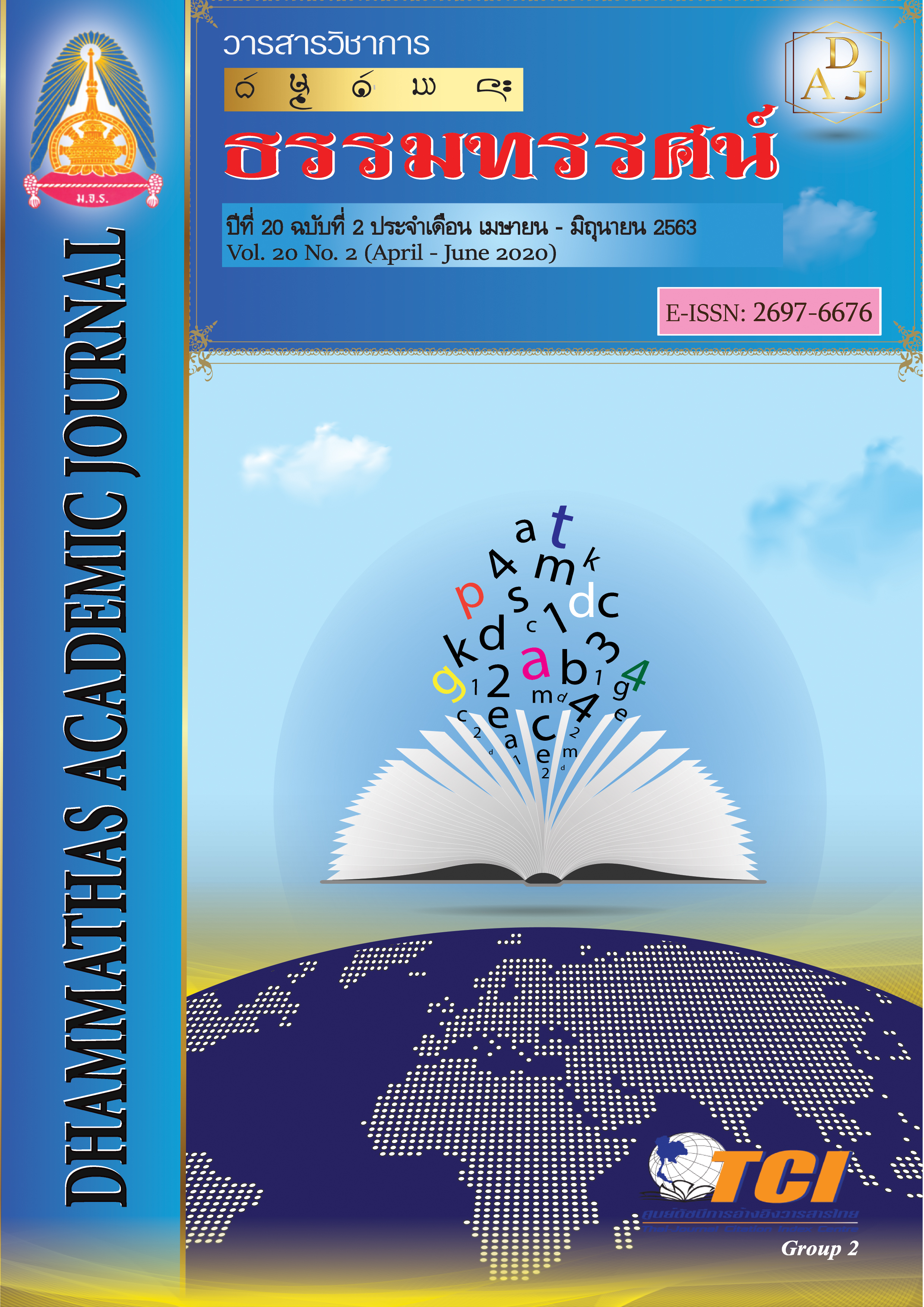A Model for using Chanda in Iddhipada 4 to Support Learning in 21st Century of Student at Phrapariyattidham Schools in Loei Province
Main Article Content
Abstract
The objectives of research were: 1) to study implementation of aspiration, a virtue in the fourfold path of accomplishment, to enhance the 21st century learning, 2) to develop the model of aspiration implementation to enhance the 21st century learning, 3) to study the efficiency of aspiration implementation model to enhance the 21st century learning. The research operation was divided into three phrases. The first phrase was the creation and examination of model concepts and theories. The second phrase was the model examination and improvement. The third phrase was the field study of model efficiency.
The research results were found that:
1. The implementation of aspiration of students, Phrapariyattidhamma school in Loei, to enhance the 21st century learning was found to be at a level of every other time. Each aspect considered, ‘implementation of the right way to reach the target’ was found to be at the highest level of ‘every other time, followed by ‘paying attention to learning’ at the level of ‘every a few times; ‘putting effort persistently’ was found to be at the lowest level of ‘once in a while’. So, it was found important for the students to develop the implementation of aspiration, a virtue in the fourfold path to accomplishment, to enhance the 21st century learning because ‘putting effort persistently’ was important in the 21st century learning.
2. The training course development found that consisted of six units: Unit 1 - Self-esteem, Unit 2 - Learning together, Unit 3 - Successful Persons, Unit 4 - Life Planning, Unit 5 - The 21st Century Learning, and Unit 6 - Virtue-based Life.
3. The training course in the field study, based on the quasi-experimental methodology, the result of the field training course was found that the mean scores of posttest for aspiration in learning were found to be overall and separately higher than the pretest’s mean scores at a statistically significant level of 0.01.
Article Details
References
National Office of Buddhism. (2006). The Strategic Plan of Phrapariyattithamma Schools for General Education Phase 1, 2549 – 2553 (2006 – 2011). Bangkok: National Office of Buddhism.
PrakruSutheavarasarn et al. (2017). The Development of Monks’ Competency in the Development of Citizenship of Community. Research funding for the fiscal year 2017 from Yanna Sangworn Research Institute.
Pinyo Prommuang et al. (2017). A Training Curriculum Making for Teacher Students’ Emotional Intelligence Development through an Application of Buddhist Meditation and Insight Meditation. Research funding for the fiscal year 2017 from Yanna Sangworn Research Institute.
Srijanwittaya Phrapariyattithamma School. (2014). Self Assessment Report Annual 2013. Loei: Srijanwittaya Phrapariyattithamma School.
Tyler, Ralph W. (1950). Basic Principles of curriculum and Instruction. Chicago: The University of Chicago press.

